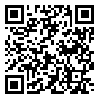Volume 4, Issue 4 (2024)
jpt 2024, 4(4): 387-402 |
Back to browse issues page
Download citation:
BibTeX | RIS | EndNote | Medlars | ProCite | Reference Manager | RefWorks
Send citation to:



BibTeX | RIS | EndNote | Medlars | ProCite | Reference Manager | RefWorks
Send citation to:
Goldouz F, Raayat Jahromi M. Gadamer’s Philosophical Hermeneutics in the Mirror of Political Philosophy. jpt 2024; 4 (4) :387-402
URL: http://jpt.modares.ac.ir/article-34-79369-en.html
URL: http://jpt.modares.ac.ir/article-34-79369-en.html
1- Department of Philosophy, Faculty of Literature and Humanities, Imam Khomeini International University, Qazvin, Iran
Abstract: (560 Views)
The main problem of philosophical hermeneutics is the problem of understanding. Understanding is determined in what context, how, and by what components. Gadamer explains these influential components by emphasizing tradition and history and emphasizes the plurality of understanding by expressing the ontological characteristics of human understanding. From this perspective, subjectivist and non-pluralist approaches are denied. In this article, we aim to examine, based on the characteristics of the understanding process in Gadamer's hermeneutic approach, namely historicity, pluralism, eventfulness, practicality, and linguistics, its relationship and proportion with political totalitarianism and pluralism, and to assess the possibility of convergence or incompatibility of the foundations of philosophical hermeneutics with political pluralism as a pluralistic political approach and divergence or compatibility of philosophical hermeneutics with political totalitarianism as a non-pluralistic political approach. Although Gadamer cannot be considered a full-fledged political philosopher, it is possible to examine political systems and their epistemological foundations based on his hermeneutic approach and evaluate their relationship.
Article Type: Original Research |
Subject:
Philosophy of Politics (Analytical)
Received: 2024/11/21 | Accepted: 2024/12/28 | Published: 2024/12/30
Received: 2024/11/21 | Accepted: 2024/12/28 | Published: 2024/12/30
References
1. Arendt H (2010). Totalitarianism. Solasi M, translator. Tehran: SALES. [Persian] [Link]
2. Ashouri D (2013). Political encyclopedia. Tehran: MORVARID. [Persian] [Link]
3. Baehr P (2010). Hannah Arendt, totalitarianism and the social sciences. Redwood: Stanford University Press. [Link] [DOI:10.11126/stanford/9780804756501.001.0001]
4. Chambers S, Carver T (2008). William E. Connolly: Democracy, pluralism and political theory. London: Routledge. [Link] [DOI:10.4324/9780203934364]
5. Dostal RJ (2002). The Cambridge companion to Gadamer. Cambridge: Cambridge University Press. [Link] [DOI:10.1017/CCOL0521801931]
6. Gadamer HG (2004). Truth and method. Weinsheimer J, Marshall DG, translators. New York: Continuum. [Link]
7. Gadamer HG (2007). The Gadamer reader: A bouquet of the later writings. Palmer RE, editor. Evanston: Northwestern University Press. [Link]
8. Grondin J (1994). Introduction of philosophical hermeneutics. New Haven: Yale University Press. [Link]
9. Grondin J (2020). From Heidegger to Gadamer, in the way of hermeneutics. Hosseini Beheshti MR, Hosseini SM, translators. Tehran: NEY. [Persian] [Link]
10. Iggers GG (1958). The cult of authority: The political philosophy of the Sain-Simonians a chapter in the intellectual history of totalitarianism. New York: Springer Press. [Link] [DOI:10.1007/978-94-015-0929-9]
11. Kaul V, Salvatore I (2020). What is pluralism?. London: Routledge Press. [Link] [DOI:10.4324/9780367814496]
12. Raayat Jahromi M (2012). Continental and culturalized philosophy of language: A comparative survey on Wittgenstein and Gadamer's ideas about language. Tehran: Research Institute for Islamic Culture and Thought. [Persian] [Link]
13. Rahbari M (2006). Hermeneutics and politics. Tehran: KAVIR. [Persian] [Link]
14. Rajabi A (2021). A reflection on the difference between the hermeneutical approaches of Gadamer and Heidegger to the problem of finitude of truth. Philosophy. 18(2):43-65. [Persian] [Link]
15. Shorten R (2012). Modernism and totalitarianism: Rethinking the intellectual sources of Nazism and Stalinism, 1945 to the present. London: Palgrave Macmillan Press. [Link] [DOI:10.1057/9781137284372]
16. Spiro H (2006). Totalitarianism. Nouri H, translator. Tehran: PARDISE DANESH. [Persian] [Link]
17. Traverson E (2019). The new faces of fascism. Broder D, translator. London: Verso Publication. [Link]
18. Vaezi A (2018). An introduction to hermeneutics. Tehran: Research Institute for Islamic Culture and Thought. [Persian] [Link]
19. Vaezi A, Ghaedi E (2015). Levels, elements and functions of the hermeneutic circle. Philosophy. 12(2):107-125. [Persian] [Link]
20. Vincent A (2012). Theories of state. Bashirriyeh H, translator. Tehran: NEY. [Persian] [Link]
21. Wiener PP (2012). Dictionary of political thoughts. Deihimi Kh, translator. Tehran: NEY. [Persian] [Link]
22. Williams MS (2009). Moral universalism and pluralism. Richardson HS, editor. New York: New York University Press. [Link]
23. Zabetpoor Gh (2008). Book review of Hermeneutics and Politics. Journal of Political Science. 11(42):205-214. [Persian] [Link]
| Rights and permissions | |
 |
This work is licensed under a Creative Commons Attribution-NonCommercial 4.0 International License. |






